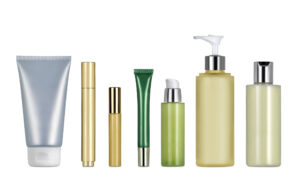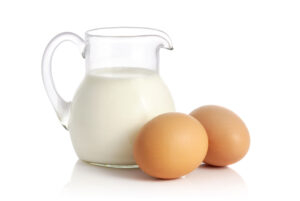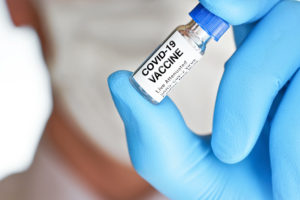Have your say! Participate in consultations to help us get food allergen labelling on natural health products and cosmetics, and in a study on introducing baked milk and/or egg. Learn what’s new in research, including a study which shows getting a second mRNA dose is safe after an allergic reaction to the first dose. Plus, check out our mythbusters and learn about the top food allergy misconceptions.
Advocacy in action: Help us get food allergen labelling on natural health products

You may regularly use a wide variety of natural health products, like vitamins, minerals, probiotics, herbal remedies, homeopathic and traditional medicines. Did you know that unlike pre-packaged foods, the labels for natural health products do not have the same requirements for providing ingredient information in plain, simple language or calling out priority food allergens? This is why over the past five years we have participated in ongoing consultations with Health Canada, to ensure food allergens would be included when labelling updates were being considered.
Health Canada is now proposing changes to the labelling on natural health products, specifically new requirements for allergen labelling. While we support their proposed changes, there are additional recommendations that are not currently addressed.
We need your help to ensure all recommendations get considered.
Before September 24th, 2021, let Health Canada know you support their proposed labelling changes to natural health products plus raise the need for additional changes.
Here’s what you need to know:
What’s included:
One of Health Canada’s proposed new regulations include the labelling of food allergens, gluten, and aspartame. Specifically:
“1. If a product contains a priority food allergen, gluten, or aspartame, a statement indicating the source of the food allergen, gluten or aspartame would be required on the product’s label.
2. If a priority allergen is used as a medicinal or non-medicinal ingredient, it is required to be listed in the Warnings section of the label, in bold. (e.g., “Allergy alert:” followed by the source of the food allergen or gluten).”
What’s missing:
There are additional recommendations that are not currently addressed. Help us ensure they get considered:
- Provide common names of all medicinal and non-medicinal ingredients – Make it easy to identify the food ingredients in a product, including priority allergens and other ingredients, given that you can be allergic to any foods. Having access to complete ingredient information is essential.
- No small package exemptions for ingredient information – Medicinal, non-medicinal, and allergy alert ingredient information should be required for all sizes of product packaging.
- Place all ingredient information together – Medicinal, non-medicinal, and allergy alert ingredient information should be placed together in the same location on the label. This makes it easier to find the information needed to make informed choices.
- Ensure access to ingredient information is available at point of purchase – It’s essential that all medicinal, non-medicinal, and allergy alert ingredient information is provided on the physical package and prior to or at point-of-sale for online purchases so those with food allergy have the information they need to avoid their allergens and make safe choices.
- Include sulphites as a priority allergen – Currently sulphites are not included as a priority allergen for the labelling of natural health products. Given that the allergen labelling requirements for food products apply to sulphites, they should be included for natural health products.
Next steps: How to provide your feedback

Let Health Canada know how important proper allergen labelling is on natural health products for those living with food allergy.
1. Read Health Canada’s consultation request: https://www.canada.ca/en/health-canada/programs/consultation-improved-labelling-natural-health-products-proposed-changes-regulations.html
2. Contact Health Canada before the deadline of September 24, 2021: Email hc.nnhpd.consultation-dpsnso.sc@canada.ca to provide your feedback. To make it easier, you can copy this paragraph:
“I am one of over 3 million Canadians impacted by food allergy and I support Health Canada’s proposed recommendations for allergen labelling on natural health products. However, there are many additional recommendations that should be considered to help me make informed choices and avoid having potential allergic reactions.
I would like Health Canada to consider including the following recommendations to ensure proper allergen labelling on natural health products: <cut and paste the points in the “What’s missing” section>.”
We will also be providing a written submission to Health Canada regarding our input on the new proposed regulations and additional considerations we would like them to include moving forward.
Thank you in advance for your support in helping to make an impact and drive change!
Advocacy in action: Help us get food allergen labelling on cosmetic products

Health Canada currently has an open consultation on potential amendments to cosmetic regulations, specifically around improving the ingredient labelling for “parfum” so it includes certain fragrance allergens. While we support this improvement, Health Canada needs to consider more than just fragrance when it comes to disclosing allergens in cosmetics, i.e., moisturizers, cleansers, make-up products, hair products (shampoo and styling) and nail products.
We need food allergens to be a part of the conversation and we need your help to make it happen.
Email the following to Health Canada at hc.cosmetics.sc@canada.ca before August 30, 2021:
“As one of over 3 million Canadians impacted by food allergy, it is critical that food allergens are listed in plain, simple language on cosmetic product labels so I can stay safe and avoid having potential allergic reactions. Although it is helpful to have fragrance allergens listed on parfum ingredient labels, I am requesting Health Canada to require food allergens to be listed on all cosmetic product labels.”
We will also be providing a written submission to Health Canada on this consultation and requesting the same requirements are considered for food allergens on all cosmetic products, as they are for fragrance allergens in parfum.
Research: For parents – participate in a study on introducing baked milk and/or egg

An international study is looking at baked milk and/or egg consumption by children after the successful completion of an oral food challenge. This important study aims to understand the introduction of baked milk and/or egg into the diet, including in what form, quantity and frequency, and the educational needs to support continued feeding at home.
Take the survey
- To participate, your child must have a diagnosed milk and/or egg allergy and have successfully completed a baked challenge.
- It takes about 10-15 minutes to complete each survey and all responses will remain anonymous
- Access the survey: https://is.gd/bakedfoods
Why your participation matters
Your participation is vital to providing the researchers, and patient organizations like ours, with insight on the general comfort with baked foods and barriers to feeding baked egg and milk at home after a successful challenge.
The results of this survey will help to ensure we create meaningful tools and resources to help support families in keeping baked egg/milk in the diet, which ultimately can lead to a faster resolution of egg and milk allergies in children.
Research: Study shows safety of second mRNA vaccine dose after allergic reactions to first dose

A new U.S. study shows that having an allergic reaction to a first dose mRNA COVID-19 vaccination should not keep individuals from getting a second dose.
The study, published in JAMA Internal Medicine, found that among people who had an allergic reaction to their first mRNA dose (Pfizer-BioNTech or Moderna), all who went on to receive a second dose tolerated it.
“This multisite US study supports the safety of Pfizer-BioNTech or Moderna vaccine second dose administration in patients who report immediate and potentially allergic reactions after the first dose,” the researchers concluded. “Although mild symptoms were reported in 20% of patients with second dose administration, all patients who received a second dose safely completed their vaccination series and could use mRNA COVID-19 vaccines in the future when indicated.”
“The study provides reassurance that a first-dose potentially allergic reaction shouldn’t keep people from getting a second dose,” co-author Matthew Krantz MD said.
For more information on the COVID-19 vaccines and considerations for those with food allergy, check out our COVID-19 and food allergy webinar series. You’ll hear from a panel of experts and get credible and informative answers to your questions, while learning more about the vaccine options.
Watch the “Get the facts” webinar:
Watch the “Is any approved vaccine the best vaccine?” webinar:
Watch the “What to know about vaccines for children and teens” webinar:

Mythbuster – Learn about the top misconceptions
Having the right information is important for managing food allergy confidently. Check out our mythbusters section and find out the facts behind some common food allergy myths about food allergens, signs and symptoms, reactions, and more.
Help us educate your communities by sharing our various mythbusters with them!
Tags: advocacy, Advocacy in action, call for participation, Have your say!, mythbusters, Research